
The Serene Wonders of Norfolk Broads
The Norfolk Broads, a unique and tranquil network of rivers and lakes in the United Kingdom, offers a picturesque escape for nature lovers and water enthusiasts alike. This enchanting landscape, often referred to as 'Britain's Magical Waterland,' is home to a diverse range of wildlife, including rare species of birds, plants, and aquatic life. The serene waters are perfect for boating, with numerous hire options available for those looking to explore the waterways at their own pace. In addition to its natural beauty, the Norfolk Broads is steeped in history and culture. Quaint villages and historic market towns dot the landscape, each with their own unique charm and stories to tell. Visitors can explore ancient churches, traditional pubs, and local museums to get a taste of the area's rich heritage. The Broads also hosts a variety of festivals and events throughout the year, celebrating everything from local food and drink to music and the arts. Outdoor activities abound in the Norfolk Broads, with ample opportunities for walking, cycling, fishing, and bird watching. The well-maintained paths and trails offer scenic routes for all levels of fitness and interest. For those seeking a more relaxed experience, simply sitting by the water's edge and soaking in the peaceful atmosphere can be just as rewarding. Whether you're looking for adventure or tranquility, the Norfolk Broads promises a memorable and rejuvenating experience.
Local tips in Norfolk Broads
- Hire a boat early. Boats are popular and can get booked up fast, especially in summer.
- Bring binoculars for birdwatching. The area is a haven for rare and interesting bird species.
- Wear comfortable shoes for walking and cycling along the trails.
- Visit local pubs and try traditional Norfolk cuisine, such as Norfolk Black Turkey and Cromer Crab.
- Check the event calendar before you go. There are many festivals and local events that can enhance your visit.
The Serene Wonders of Norfolk Broads
The Norfolk Broads, a unique and tranquil network of rivers and lakes in the United Kingdom, offers a picturesque escape for nature lovers and water enthusiasts alike. This enchanting landscape, often referred to as 'Britain's Magical Waterland,' is home to a diverse range of wildlife, including rare species of birds, plants, and aquatic life. The serene waters are perfect for boating, with numerous hire options available for those looking to explore the waterways at their own pace. In addition to its natural beauty, the Norfolk Broads is steeped in history and culture. Quaint villages and historic market towns dot the landscape, each with their own unique charm and stories to tell. Visitors can explore ancient churches, traditional pubs, and local museums to get a taste of the area's rich heritage. The Broads also hosts a variety of festivals and events throughout the year, celebrating everything from local food and drink to music and the arts. Outdoor activities abound in the Norfolk Broads, with ample opportunities for walking, cycling, fishing, and bird watching. The well-maintained paths and trails offer scenic routes for all levels of fitness and interest. For those seeking a more relaxed experience, simply sitting by the water's edge and soaking in the peaceful atmosphere can be just as rewarding. Whether you're looking for adventure or tranquility, the Norfolk Broads promises a memorable and rejuvenating experience.
When is the best time to go to Norfolk Broads?
Iconic landmarks you can’t miss
Pull's Ferry
A tranquil 15th-century watergate and ferry house on the River Wensum, symbolizing Norwich’s medieval river trade and architectural heritage.
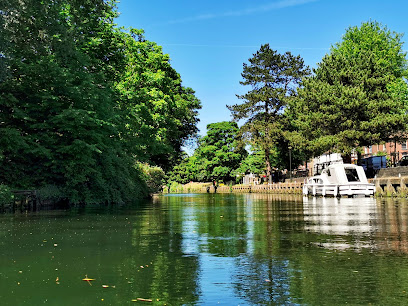
Nelson's Monument
A towering 44m Doric column in Great Yarmouth honoring Admiral Nelson with panoramic views and rich maritime history.
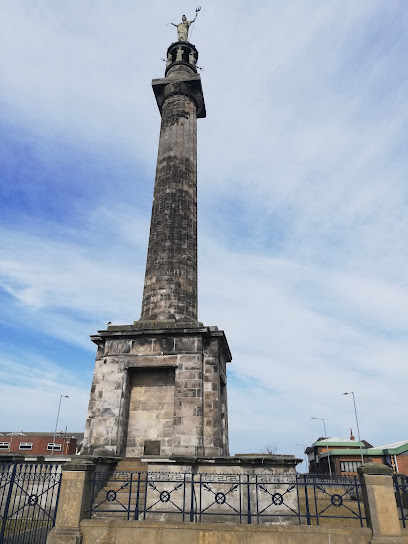
Potter Heigham bridge
Historic 14th-century bridge and boating hub in Norfolk Broads, blending medieval charm with scenic waterways and vibrant village life.
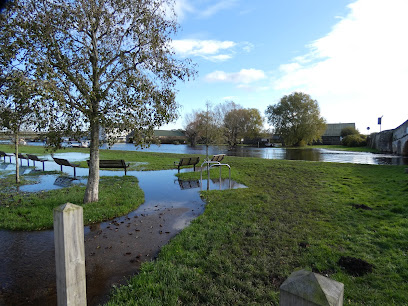
Unmissable attractions to see
Castle Quarter
Castle Quarter Norwich: Five levels of shopping, dining, and entertainment in the city centre.
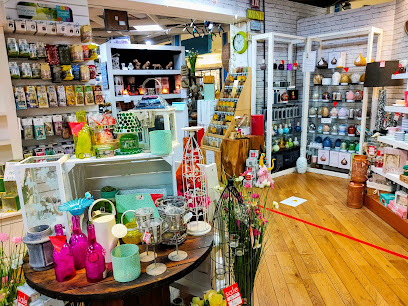
The Broads National Park
Britain's largest protected wetland where medieval peat pits transformed into a timeless landscape of water, wildlife and wonder.
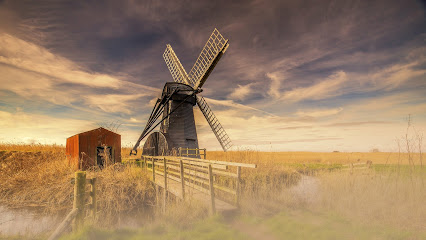
National Trust - Blickling Estate
Explore the grandeur of a Jacobean mansion, centuries-old gardens, and peaceful Norfolk parkland at the historic Blickling Estate.
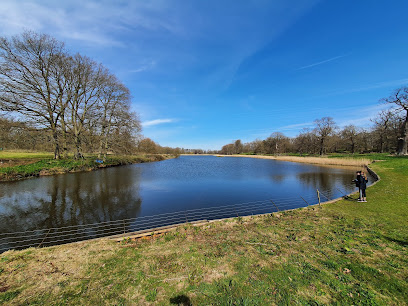
Market Gates Shopping Centre (Great Yarmouth)
A practical indoor shopping centre in Great Yarmouth’s town heart, blending chain stores and local shops for everyday needs.
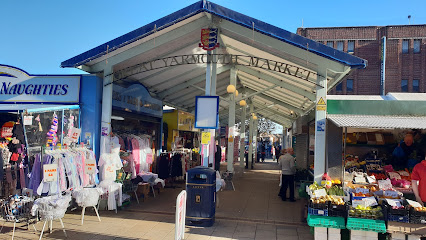
Jarrolds
Historic family-owned department store in Norwich blending heritage charm with modern retail across fashion, home, and local crafts.
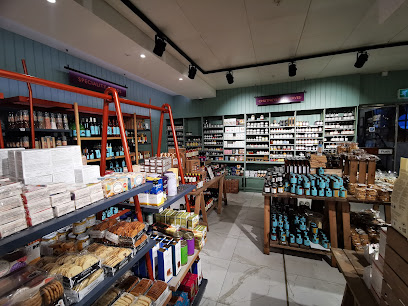
Wroxham Barns
Discover artisan crafts, family farm fun, and seasonal festivities at Norfolk’s charming Wroxham Barns.
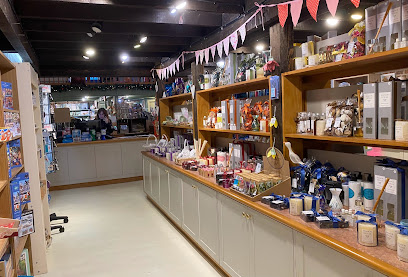
Oxburgh Estate
Discover Oxburgh Estate, a moated medieval manor where Catholic history, royal legacy, and Gothic revival architecture intertwine in tranquil Norfolk parkland.
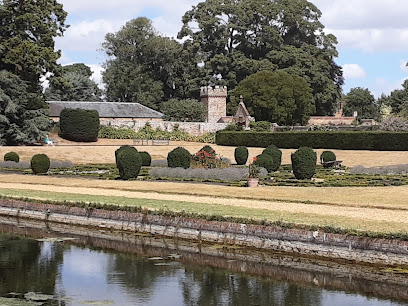
National Trust - Horsey Windpump
Explore Norfolk’s largest restored windpump with panoramic views, wildlife gardens, and rich heritage in the heart of the Broads.
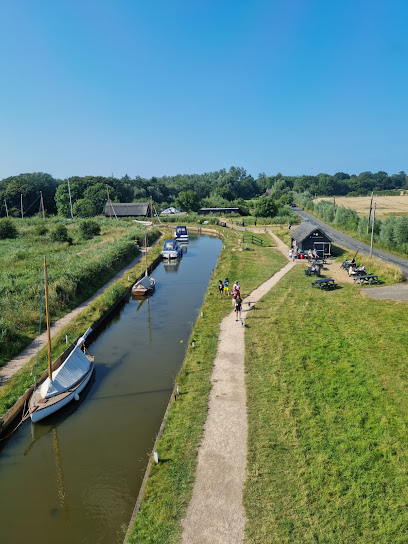
BeWILDerwood Norfolk
Explore 20 acres of magical woodland with whimsical treehouses, giant slides, and enchanting storytelling at BeWILDerwood Norfolk.
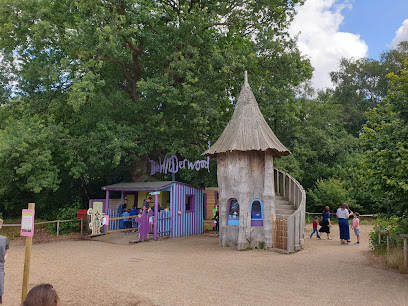
Poppylands 1940s Tearoom
Step into wartime Britain at Poppylands, where 1940s charm meets hearty home-cooked fare and nostalgic family fun in Norfolk.
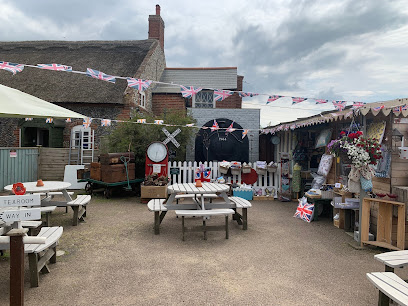
National Trust - Felbrigg Hall, Gardens & Estate
Explore Felbrigg Hall’s historic charm, vibrant gardens, and tranquil Norfolk estate, a beloved National Trust treasure steeped in family heritage.
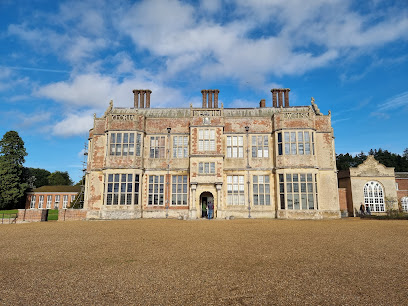
Castle Acre
Explore the evocative ruins of a Norman motte-and-bailey castle in the peaceful Norfolk countryside, part of a rare, complete Norman planned settlement.
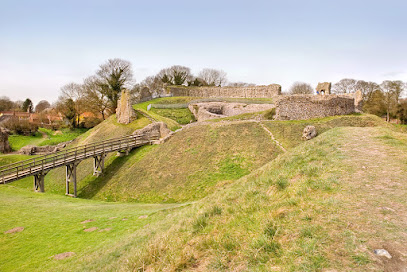
Roys of Wroxham Food Hall
A historic family-run food hall in Norfolk offering local produce, seasonal delights, and a rich shopping experience in the heart of the Broads.
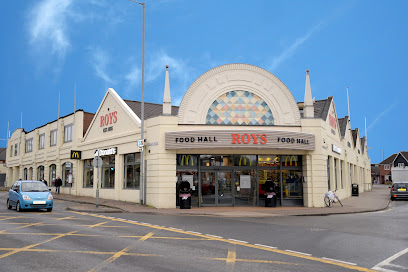
The Ferry Inn
A charming riverside pub in Stokesby offering classic British fare, local ales, and mooring on the Norfolk Broads.
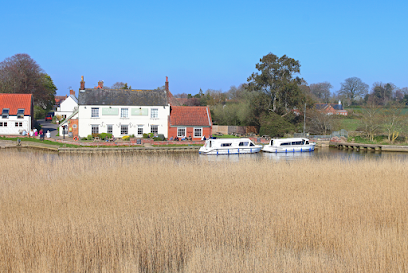
The Waterside
A charming lakeside café and family-friendly retreat with stunning views, boat tours, and wildlife on Norfolk’s Rollesby Broad.
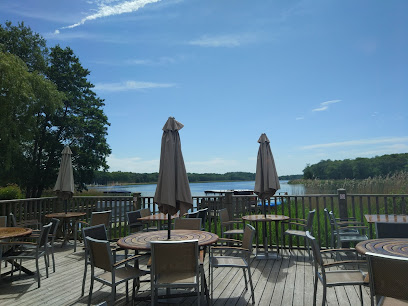
Essential places to dine
Acle Bridge Inn
Historic riverside inn on the Norfolk Broads offering hearty British fare, family-friendly charm, and scenic waterside hospitality.
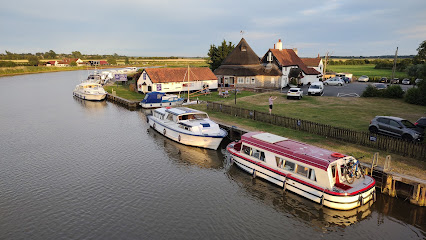
Rising Sun Coltishall
Historic riverside pub and inn in Coltishall offering wood-fired pizzas, cozy rooms, and warm Norfolk hospitality by the Broads.
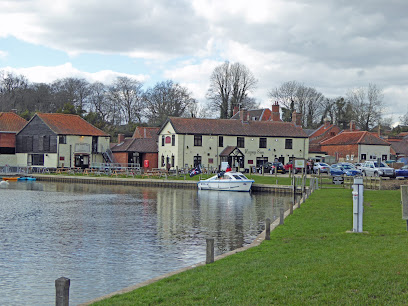
The White Horse Brancaster Staithe
A stylish coastal gastropub and hotel offering award-winning seafood, stunning tidal marsh views, and a tranquil Norfolk retreat.
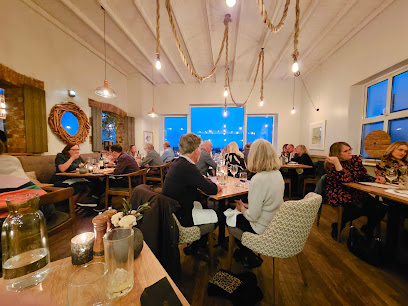
The Gunton Arms
A stylish Norfolk gastropub where open-fire cooking, local game, and contemporary art create an unforgettable country dining retreat.
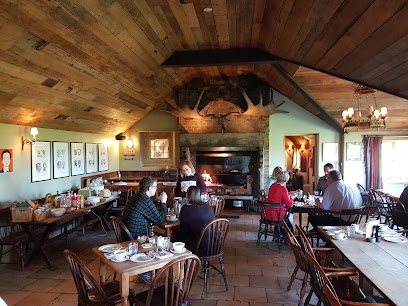
The Bell Inn
Historic pub nestled on the Norfolk Broads offering hearty British fare and a cozy, scenic waterside retreat.
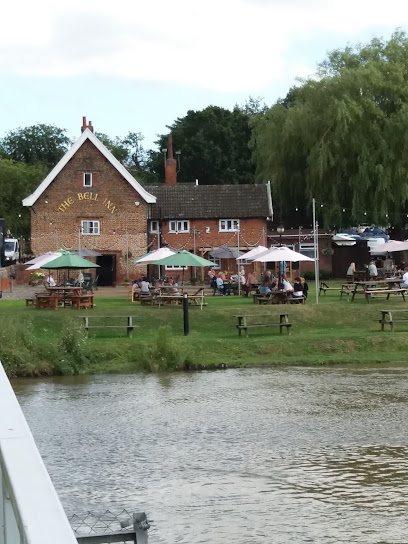
The Boathouse | Restaurant | Wedding Venue | Pub | Accommodation
Charming waterside restaurant, pub, and accommodation with stunning Norfolk Broads views and seasonal British cuisine.
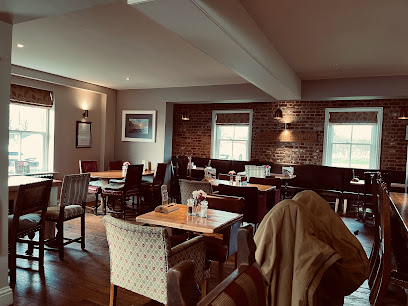
The Ferry House
A charming riverside pub in Surlingham offering hearty British fare, peaceful views, and warm hospitality on the Norfolk Broads.
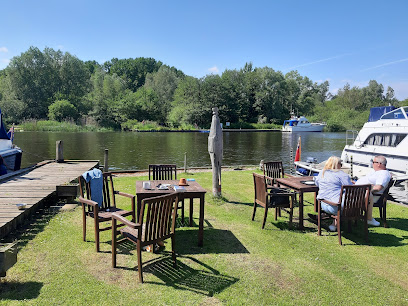
Reedham Ferry Inn
A charming riverside pub and peaceful campsite on the Norfolk Broads, perfect for scenic walks, fishing, and authentic British hospitality.
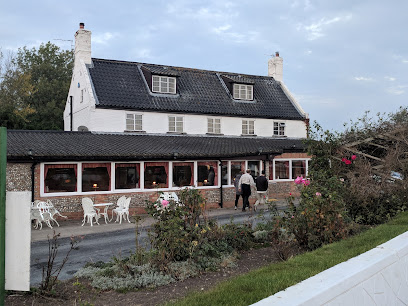
The Kings Head
Historic gastropub and charming 4-star inn in Bawburgh, blending local flavors with cozy countryside hospitality.

White Horse Upton
A beloved community pub in Upton offering hearty food, real ales, live music, and a welcoming atmosphere on the Norfolk Broads.
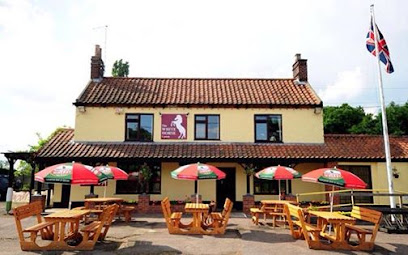
The Wildebeest
Elegant modern British cuisine with a seasonal Norfolk focus in a relaxed, rustic-chic setting near Norwich.
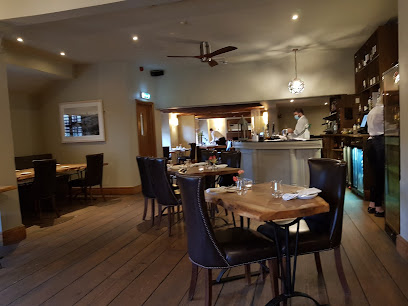
The Old Mill
Family-run British café bar with classic breakfasts and grills, set by the riverside in Hoveton near the Norfolk Broads.
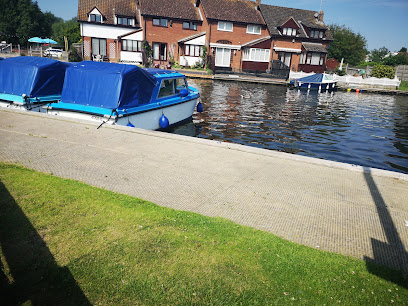
The Ingham Swan
A charming Norfolk gastropub and inn blending rustic heritage with modern dining and comfort in tranquil countryside surroundings.
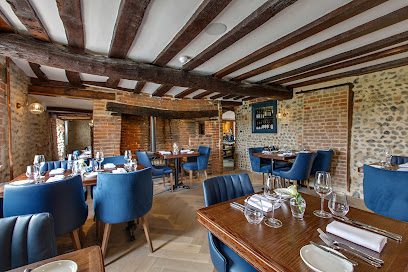
The Swan Inn Stalham
A beloved Norfolk pub and restaurant offering traditional British fare, friendly service, and a warm community atmosphere in the heart of Stalham.
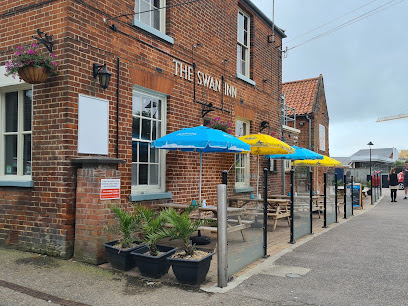
The Queen's Head
Norfolk's neighbourhood gem where quality food, genuine warmth, and inclusive hospitality meet traditional pub charm.
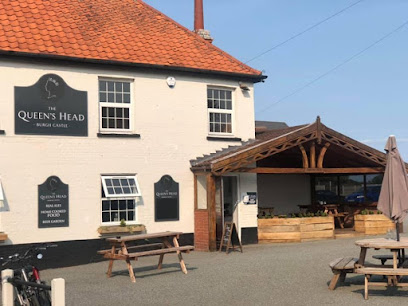
Markets, malls and hidden boutiques
Lathams of Potter Heigham
The Norfolk Broads’ largest discount superstore blending value shopping, fishing heritage, garden delights, and artisan café treats.
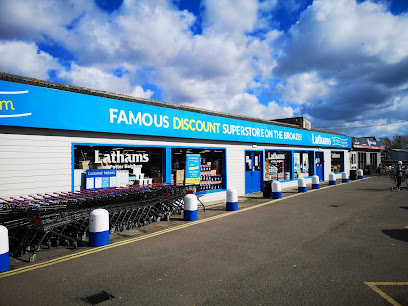
Roys of Wroxham Department store
Discover traditional British charm and a vast array of goods at Roys of Wroxham, Norfolk’s iconic department store and festive shopping haven.
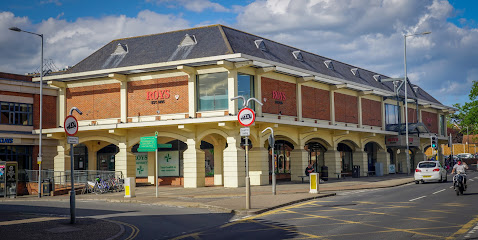
Norwich Lanes
Explore Norwich Lanes, a vibrant maze of independent shops, historic alleys, and charming eateries in the heart of Norwich’s cultural quarter.
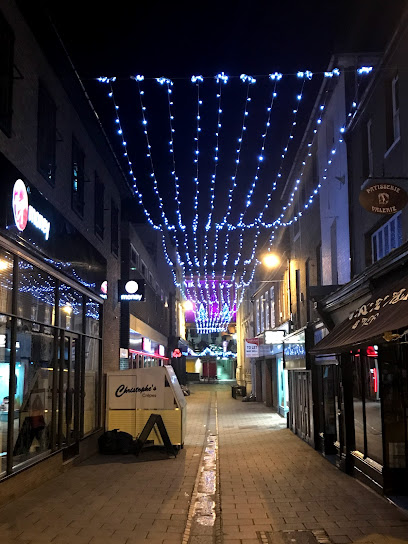
Ludham Bridge Stores
Charming general store offering fresh local produce, souvenirs, and essentials in the heart of the Norfolk Broads’ boating community.
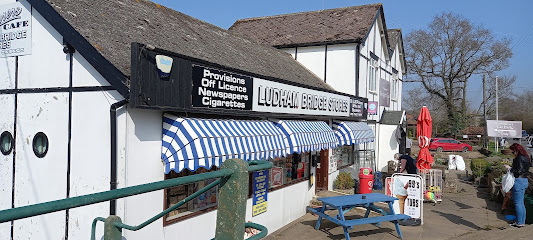
Cannells By The River
Charming waterside café and farm shop offering fresh local produce and scenic Norfolk Broads views in Reedham.

Toad Hole Cottage Museum
Step back in time at Toad Hole Cottage Museum, a charming 18th-century marshman’s home nestled in the scenic Norfolk Broads.
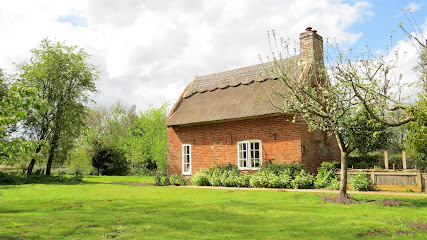
Elm Hill Craft Shop
Handcrafted treasures in a medieval masterpiece—Norwich's most charming independent craft shop.
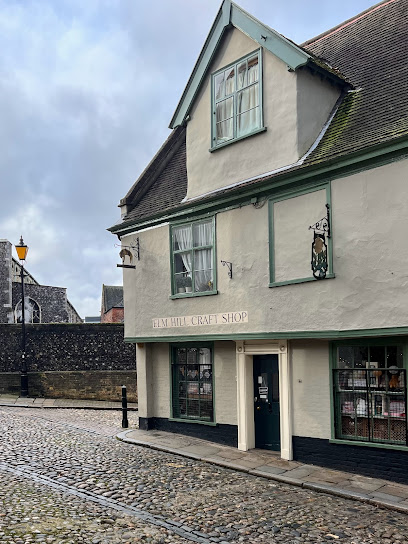
Vogue
Discover unique gifts and local treasures at Vogue, Great Yarmouth’s charming and welcoming gift shop on Regent Road.
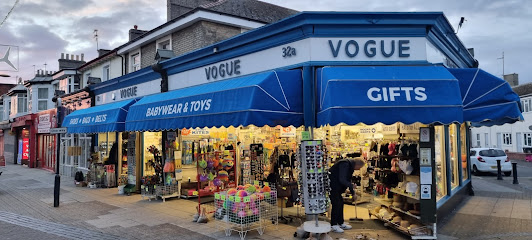
North Norfolk Crafts & Gift Shop
Discover authentic handmade crafts and unique gifts by local artisans in the charming coastal village of Mundesley.
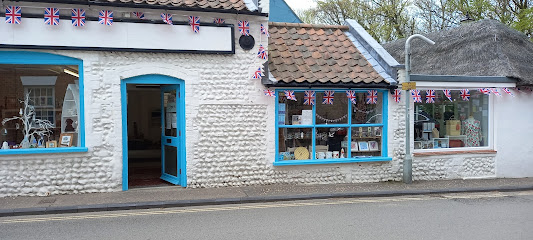
Ferailles Shop - (Knot Just A Furniture Shop!) - Great Yarmouth
Discover unique antiques, art, and treasures at Ferailles Shop – Great Yarmouth’s charming boutique where every item tells a story.
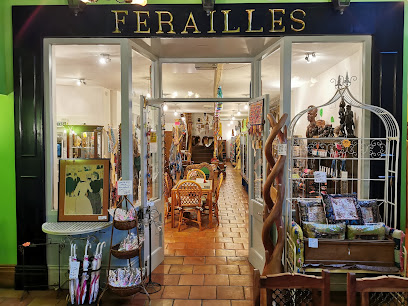
Reedham Stores
A charming village convenience store offering local goods, fresh snacks, and a warm community welcome in the heart of Reedham, Norwich.
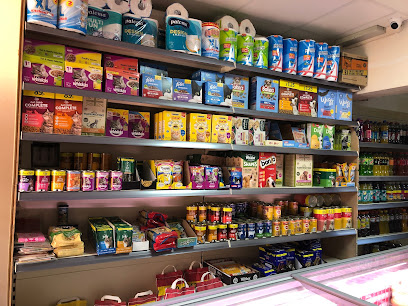
The Bridge Gift Shop
Discover authentic local crafts and unique gifts at The Bridge Gift Shop, a charming boutique in the heart of Hoveton, Norfolk.
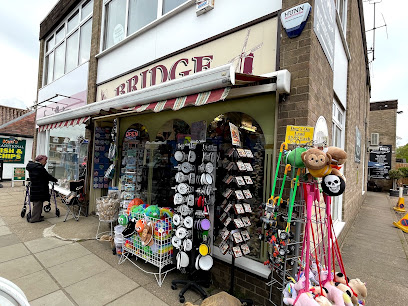
Mermaid Quay
Discover unique local crafts, handmade jewelry, and charming gifts in the heart of Great Yarmouth at Mermaid Quay.
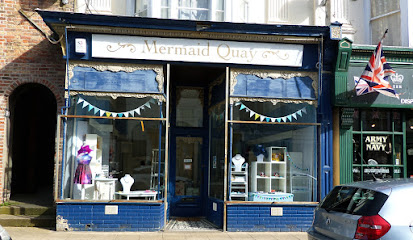
Tucked Away Norfolk
Discover handcrafted Norfolk treasures in a charming barn setting at Tucked Away, North Walsham’s artisan gift shop.
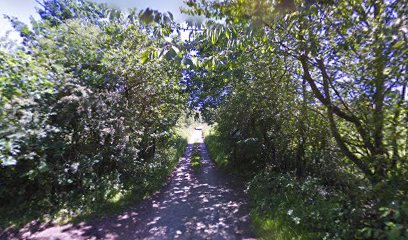
Essential bars & hidden hideouts
Acle Bridge Inn
Historic riverside inn on the Norfolk Broads offering hearty British fare, warm hospitality, and family-friendly charm in a scenic waterside setting.
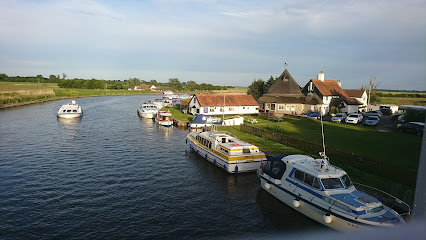
Rising Sun Coltishall
A charming riverside pub and inn in Coltishall offering hearty food, cozy rooms, and a warm, traditional English atmosphere.
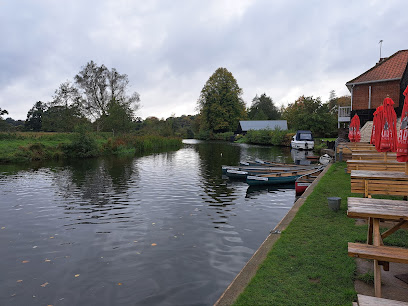
The Ferry Inn of Horning
A lively traditional pub on the Norfolk Broads offering hearty fare, riverside charm, and a family-friendly atmosphere.
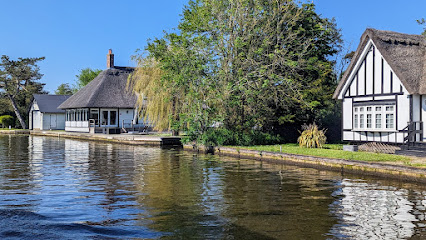
The Swan Inn
Charming riverside pub and inn in Horning offering cozy rooms, hearty British fare, and scenic views along the Norfolk Broads.
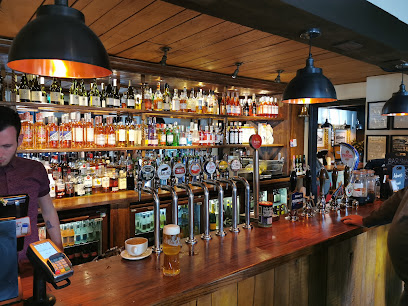
The Kings Head
Historic riverside pub in Hoveton offering classic British fare and cozy accommodation by the scenic Norfolk Broads.
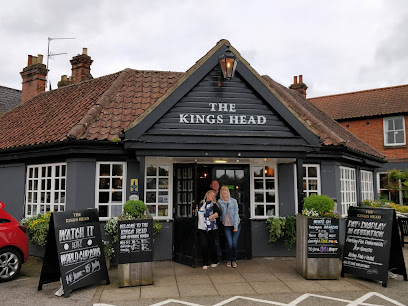
Fur & Feather Inn
Experience Norfolk’s finest brewery tap and gastropub, where local ales and hearty seasonal dishes celebrate the heart of the Broads.
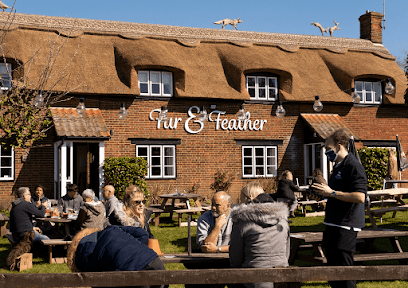
The Maltsters
A cozy, family-run pub in Ranworth offering hearty British fare, real ales, and riverside charm by the Norfolk Broads.
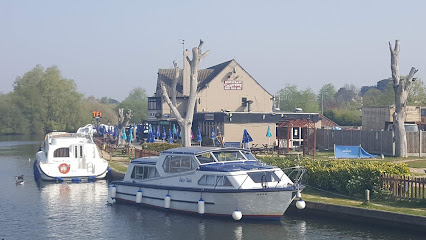
Kings Arms
A charming Norfolk village pub serving exceptional home-cooked food and welcoming dogs and families in a warm, friendly atmosphere.
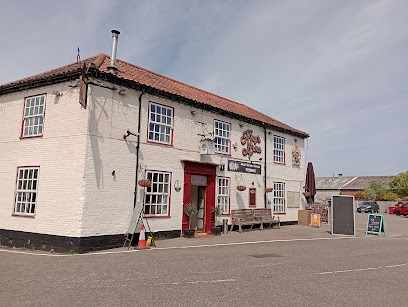
The Lion Inn
Historic riverside pub on the Norfolk Broads offering cozy charm, real ales, and hearty fare in a scenic village setting.
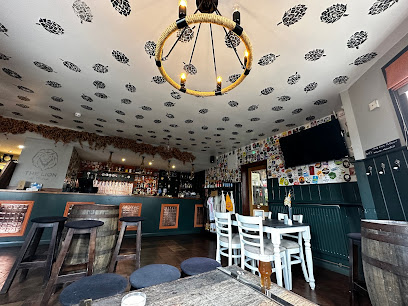
The Ferry House
A charming riverside pub in Surlingham offering hearty British fare, friendly service, and peaceful Norfolk Broads views.
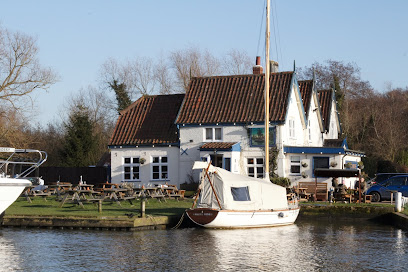
New Inn, Horning
A welcoming riverside pub in Horning offering hearty food, local ales, and scenic views on the Norfolk Broads.
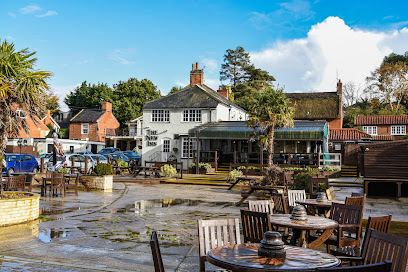
White Horse Inn Neatishead
Charming historic pub with award-winning ales, seasonal menus, and a welcoming atmosphere on the Norfolk Broads.
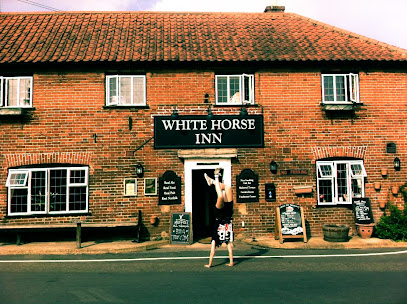
The Ferry Inn
A charming riverside pub in Stokesby offering classic British fare, scenic views of the Norfolk Broads, and welcoming mooring for boaters.
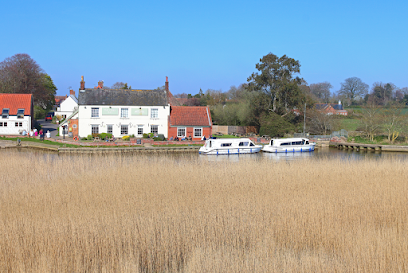
Dog Inn Ludham
A welcoming, dog-friendly pub in Ludham offering hearty home-cooked meals, local ales, and a cozy campsite in the Norfolk Broads.
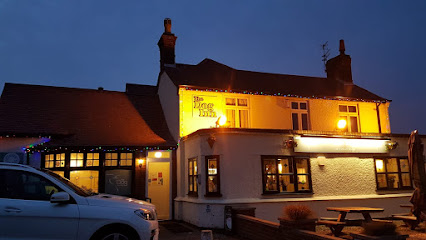
Local Phrases about Norfolk Broads
-
- HelloAlright
[al-riyt] - GoodbyeTarra
[ta-ra] - YesYar
[yah] - NoNah
[nah] - Please/You're welcomeTa
[tah] - Thank youCheers
[cheers] - Excuse me/SorrySorreh
[sor-ree] - How are you?How be yew?
[hau biu yu] - Fine. And you?All rate. And yew?
[ol reyt. and yu] - Do you speak English?Dew yew speak Ingleesh?
[du yu spiik in-glEsh] - I don't understandI doan unnerstan
[ai doant anderstend]
- HelloAlright
-
- I'd like to see the menu, pleaseI wud loike ter see the menu, pliz
[ai wud lOik ter si thee men-yu, pliz] - I don't eat meatI doan eat meat
[ai doant iit miit] - Cheers!Cheers!
[cheers] - I would like to pay, pleaseI wud loike ter pay, pliz
[ai wud lOik ter pei, pliz]
- I'd like to see the menu, pleaseI wud loike ter see the menu, pliz
-
- Help!Elp!
[elp] - Go away!Goo awai!
[guu awai] - Call the Police!Call the Police!
[col thee po-liis] - Call a doctor!Call a doctor!
[col a doc-tor] - I'm lostI'm lost
[aim lost] - I'm illI'm ill
[aim il]
- Help!Elp!
-
- I'd like to buy...I wud loike ter buy...
[ai wud lOik ter bai...] - I'm just lookingI'm just lookin
[aim jUst lukin] - How much is it?How much is it?
[hau mUch iz it] - That's too expensiveThet's too dear
[thets tu di-yer] - Can you lower the price?Can yew lower the price?
[kan yu lo-er thee priis]
- I'd like to buy...I wud loike ter buy...
-
- What time is it?Wot toime is it?
[wot toim iz it] - It's one o'clockIt's one o'clock
[its wun o-klok] - Half past (10)Arf past ten
[arf past ten] - MorningMornin
[mawr-nin] - AfternoonArvo
[ar-vo] - EveningEvenin
[eev-nin] - YesterdayYestiday
[yest-ih-day] - TodayTooday
[too-day] - TomorrowTomorra
[to-mo-ra] - 1Wun
[wun] - 2Too
[too] - 3Trey
[tray] - 4Fower
[fow-er] - 5Fibe
[fyeb] - 6Sayx
[sayks] - 7Sevven
[sev-vin] - 8Ayte
[ait] - 9Noin
[noin] - 10Ten
[ten]
- What time is it?Wot toime is it?
-
- Where's a/the...?Wheres the...?
[wherz thee] - What's the address?Wots the address?
[wots thee ad-dress] - Can you show me (on the map)?Can yew show me (on the map)?
[kan yu show mi (on thee map)] - When's the next (bus)?When's the next (bus)?
[whens thee nekst (bus)] - A ticket (to ....)A ticket (to ....)
[ei tik-et (tu)]
- Where's a/the...?Wheres the...?
History of Norfolk Broads
-
The Norfolk Broads, a network of rivers and lakes, were formed during the medieval period. Originally, the Broads were not natural lakes but peat excavations that flooded. The demand for peat as a fuel source led to extensive digging, which, when abandoned, filled with water and created the Broads we see today.
-
From the 12th to the 14th century, the Norfolk area was a hub for peat extraction. Monasteries and local communities extensively dug peat, which was an essential source of fuel. These peat diggings, or 'turbaries,' eventually flooded due to rising water levels, forming the basis of the Norfolk Broads.
-
During the 17th and 18th centuries, the Broads became a significant commercial waterway. Wherries, traditional flat-bottomed sailing boats, were used to transport goods such as coal, grain, and reeds. This trade was vital for the local economy and contributed to the development of surrounding market towns.
-
The Victorian era marked the beginning of the Norfolk Broads as a tourist destination. The advent of the railway system made the Broads more accessible, and the publication of guidebooks like 'The Handbook to the Rivers and Broads of Norfolk & Suffolk' by George Christopher Davies in 1887 further popularized the area. Boating holidays became fashionable among the middle and upper classes.
-
By the mid-20th century, concerns about pollution and habitat destruction led to significant conservation efforts. The Norfolk and Suffolk Broads Act of 1988 established the Broads Authority, tasked with preserving the natural beauty, wildlife, and navigability of the area. These efforts have helped maintain the Broads as a cherished natural and recreational resource.
-
The Norfolk Broads have influenced British culture and media over the years. Arthur Ransome's 'Coot Club' and 'The Big Six,' part of his beloved Swallows and Amazons series, were set in the Broads. These books have played a role in romanticizing and popularizing the region, contributing to its enduring appeal as a family holiday destination.
-
Today, the Norfolk Broads are a unique blend of natural beauty and historical significance. They cover over 300 square kilometers and are home to a diverse range of wildlife, including rare bird species, aquatic plants, and insects. The area attracts thousands of visitors annually, drawn by its tranquil waterways, picturesque villages, and opportunities for boating, fishing, and hiking.
Norfolk Broads Essentials
-
The Norfolk Broads are located in the eastern part of England, in the counties of Norfolk and Suffolk. The nearest major airport is Norwich International Airport, which is approximately 10 miles from the Broads. From the airport, you can take a taxi or a bus to the Broads. Alternatively, you can fly into London and take a train from London Liverpool Street to Norwich, which takes around 2 hours. From Norwich, local trains and buses provide access to various parts of the Broads.
-
Once in the Norfolk Broads, transportation options include renting a boat, which is a popular way to explore the waterways. There are also local bus services that connect key towns and villages. Cycling is another great option, with many scenic routes available. For those who prefer not to drive, taxis and ride-sharing services are available, but having a car can provide more flexibility for exploring the area.
-
The official currency in the United Kingdom is the British Pound (GBP). Credit and debit cards are widely accepted in most establishments, including restaurants, shops, and hotels. ATMs are available in most towns and villages, but it is advisable to carry some cash, especially when visiting more remote areas or small local shops.
-
The Norfolk Broads are generally a safe area for tourists. However, it is always wise to take standard precautions such as keeping an eye on your belongings and avoiding isolated areas at night. There are no specific high-crime areas targeting tourists, but staying vigilant and aware of your surroundings is always a good practice.
-
In case of emergency, dial 999 for immediate assistance. The emergency services in the UK include police, ambulance, and fire services. There are medical facilities and pharmacies in the main towns such as Norwich and Great Yarmouth. It is advisable to have travel insurance that covers medical emergencies. For minor health issues, there are pharmacies where you can purchase over-the-counter medications.
-
Fashion: Do dress comfortably and appropriately for outdoor activities, as the weather can be unpredictable. Don't wear overly formal clothing when exploring the Broads. Religion: Do respect local customs and traditions, especially when visiting churches. Public Transport: Do have exact change for bus fares, as not all buses accept cards. Don't be loud or disruptive on public transport. Greetings: Do greet people with a friendly 'hello' or 'good morning.' Don't be overly informal with strangers. Eating & Drinking: Do try local delicacies and visit traditional pubs. Don't leave a large tip, as service charges are often included.
-
To experience the Norfolk Broads like a local, consider visiting during the off-peak seasons to avoid crowds. Engage with local boat hire companies for insider tips on the best routes and hidden gems. Visit local markets and small villages to get a taste of the area's culture and history. Don't miss out on trying locally produced food and drink, such as Cromer crab and Norfolk ale.
Nearby Cities to Norfolk Broads
-
Things To Do in London
-
Things To Do in De Haan
-
Things To Do in Ostend
-
Things To Do in Blankenberge
-
Things To Do in Ostend-Bruges International Airport
-
Things To Do in Nieuwpoort
-
Things To Do in Zeebrugge
-
Things To Do in Knokke-Heist
-
Things To Do in Nottingham
-
Things To Do in Bruges
-
Things To Do in The Hague
-
Things To Do in Windsor
-
Things To Do in Delft
-
Things To Do in Leiden
-
Things To Do in Haarlem










